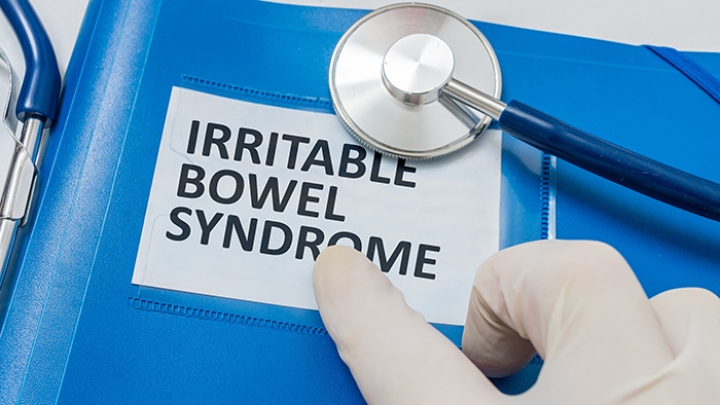(RxWiki News) Irritable bowel syndrome (IBS) is a common but misunderstood digestive disorder. Learn more about the causes and symptoms of IBS including constipation and diarrhea.
Irritable bowel syndrome (IBS) is one of the most common and misunderstood digestive disorders. One in five adults in the United States has symptoms of IBS, but only a small number of people with symptoms seek treatment.
The good news is that IBS can often be treated once the right diagnosis is made. However, a diagnosis may take many tests to rule out other diseases. It also appears that the disorder does not cause long-term damage to the digestive tract or lead to serious complications.
Causes of irritable bowel syndrome
The cause of IBS is not well understood. Some researchers think that IBS may be caused by problems in the rhythmic muscle contractions that move food through the small and large intestines. Contractions that are too strong can push food through the intestines too quickly, causing diarrhea and bloating. On the other hand, weak contractions can lead to constipation.
Women develop IBS two to three times more often than men, so some experts think that the symptoms may be related to hormone levels.
Other proposed causes of IBS:
- Hypersensitivity to pressure in the small and large intestines
- An imbalance in neurotransmitters (chemicals found in both the brain and digestive tract)
- Infection (a number of studies have associated IBS with an overgrowth of intestinal bacteria)
Psychological factors may also play a role. IBS and mental stress appear to be closely related. People with depression or anxiety tend to be more likely to get IBS. Studies also show an increased risk of IBS in women who have been physically or sexually abused.
Recent research has focused on a specific cluster of carbohydrates that may trigger IBS symptoms. Findings show that patients who avoid foods containing these carbohydrates may be able to get their symptoms under control. The carbohydrates, which are found in a wide variety of plant-based foods, are collectively referred to as FODMAPs:
- Fermentable oligosaccharides
- Disaccharides
- Monosaccharides
- Polyols
A low-FODMAP diet is quite restrictive. You need to eliminate the following foods:
- Wheat
- Most dairy products
- Common and popular fruits and vegetables:
- Apples
- Peaches
- Broccoli
- Sweet corn
Guidance from a nutritionist or dietitian may be needed to follow this type of diet correctly, which is not easy. Moreover, this treatment of IBS has not been agreed upon by all experts. Gluten sensitivity and lactose intolerance may also play roles in IBS and can be assessed before implementing a low-FODMAP diet.
Symptoms of irritable bowel syndrome
The symptoms of IBS often first appear during the teenage years or young adulthood. But the condition can develop at any time, even in older adults. One of the most common symptoms is abdominal (stomach) discomfort or pain, accompanied by diarrhea, constipation, or alternating constipation and diarrhea.
Other symptoms of IBS:
- Abdominal bloating
- Feeling of incomplete emptying of the bowels after passing stool
- Mucus in the stool
If you have IBS, you may find the symptoms distressing and disruptive to your life. The severity of symptoms varies. Most people have mild symptoms, but they can become more severe and even disabling at times. Some women report that IBS symptoms are worse before and during their menstrual periods. The symptoms may even awaken some people in the middle of the night—though this is not typical.
Diagnosis of irritable bowel syndrome
IBS is hard to diagnose because the disease causes no known physical abnormalities that doctors can see through physical exams, imaging studies, or lab testing. And because the symptoms of IBS overlap with so many other digestive disorders, people with the syndrome are sometimes misdiagnosed.
IBS can easily be confused with these diseases:
- Diverticulitis
- Colon cancer
- Intestinal obstruction
- Ulcerative colitis
- Crohn’s disease
- Gastrointestinal infection
- Celiac disease
- Lactose intolerance
IBS is more commonly diagnosed in those under age 50. Therefore, older adults should make sure that another disease more common in the elderly isn’t causing their symptoms. A doctor will take a medical history, perform a physical exam, and order blood tests. Older individuals should have a colonoscopy or sigmoidoscopy to rule out the possibility of colorectal polyps or cancer and colitis. More involved testing, such as CT scans or endoscopic examination, may also be necessary.
You should also have a blood test for celiac disease if your IBS symptoms involve mostly diarrhea or an alternating pattern of diarrhea and constipation. Your doctor also may perform a breath test for lactose intolerance if your symptoms seem to worsen when eating dairy products.
Once your doctor determines that your abdominal pain is not due to a physical abnormality, two of the following three criteria must be met to make a diagnosis of IBS:
- Bowel movements alleviate pain
- Pain is accompanied by constipation or diarrhea
- Pain is associated with a change in the form of the stool (watery, loose, or pellet-like)
These symptoms must be present, all of the time or occasionally, for at least three months.
IBS is a common disease, but the symptoms can be confusing and similar to many other digestive disorders. Talk to your doctor if you think you might have IBS and they will order the proper tests for diagnosis.

